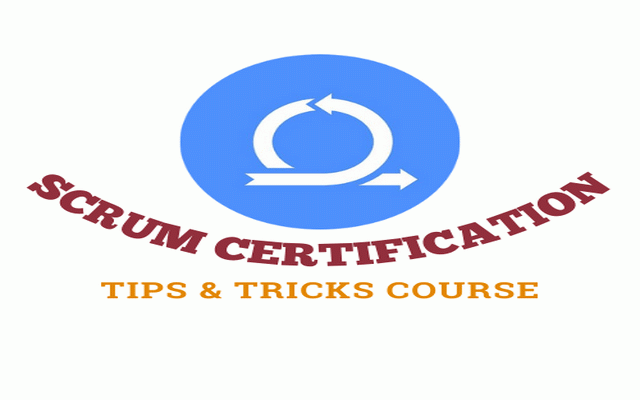Scrum Certification Tips and Tricks Course
Introduction
Are you considering a Scrum certification to enhance your Agile skills and boost your career prospects? With the growing demand for Agile methodologies in the business world, obtaining a Scrum certification can be a valuable asset. However, before you invest your time and resources, it’s important to understand the essentials. In this blog post, based on years of experience as a professional Scrum Master and trainer, we will guide you through the key aspects of Scrum certification and provide helpful suggestions to pass the certification exam on your first attempt.
Who Can Apply for Scrum Certification?
Scrum certification is open to professionals from various fields, including software development, project management, product management, business analysis, and more. Whether you’re an experienced Scrum practitioner or new to Agile methodologies, Scrum certification can benefit anyone looking to deepen their understanding of Scrum and enhance their Agile skill set.
Prerequisites for Scrum Certification
While there are no strict prerequisites for most Scrum certifications, it’s advisable to have a basic understanding of Agile principles and familiarity with Scrum concepts. Prior experience working in Agile teams or exposure to Agile projects can provide a solid foundation. However, even if you’re new to Scrum, there are entry-level certifications available that cater to individuals at different stages of their Agile journey.
Choosing the Right Certification Body
When it comes to Scrum certifications, two reputable bodies stand out: Scrum.org and Scrum Alliance. Both offer rigorous certification programs; however, it’s essential to consider your career goals, learning preferences, and the focus of each organization. Let’s take a closer look at each:
- Scrum.org (link: www.scrum.org): Scrum.org provides a comprehensive suite of Scrum certifications, including the Professional Scrum Master (PSM) and Professional Scrum Product Owner (PSPO) certifications. Their assessments focus on knowledge, practical application, and a deep understanding of Scrum. These certifications are known for their rigorous examination process and are highly regarded in the Agile community. CLICK HERE TO LEARN MORE ABOUT SCRUM.ORG
- Scrum Alliance (link: www.scrumalliance.org): Scrum Alliance offers the Certified ScrumMaster (CSM) and Certified Scrum Product Owner (CSPO) certifications, among others. Their certifications emphasize practical skills and a broader understanding of Agile principles. Scrum Alliance focuses on fostering a collaborative and interactive learning environment through its certification programs. CLICK HERE TO LEARN MORE ABOUT SCRUM ALLIANCE.
Preparing for Scrum Certification
To increase your chances of passing the Scrum certification exam on your first attempt, consider the following suggestions:
- In-depth Understanding of Scrum: Familiarize yourself with the Scrum Guide (available on both Scrum.org and Scrum Alliance websites) and understand its core principles, artifacts, roles, and ceremonies. Take the time to internalize the concepts and how they apply to real-world scenarios.
- Hands-on Experience: Gain practical experience by working in Scrum teams or participating in Agile projects. Apply Scrum principles and practices to real-world scenarios, which will enhance your understanding and problem-solving skills. Actively engage in team activities, such as daily stand-ups, sprint planning, and retrospectives.
- Self-Study and Resources: Leverage online resources, practice exams, and study guides provided by Scrum.org and Scrum Alliance. These resources will help you reinforce your knowledge and identify any knowledge gaps. Additionally, consider enrolling in Scrum-focused training courses, either online or in-person, to further enhance your understanding of Scrum concepts.
- Join Scrum Communities: Engage with the Scrum community by attending meetups, webinars, and conferences. Networking with experienced practitioners can provide valuable insights and tips for success. Engaging in discussions, asking questions, and sharing your experiences can deepen your understanding of Scrum and Agile practices.
Conclusion
Obtaining a Scrum certification is a significant step towards becoming an Agile professional. By investing in your Scrum certification journey, you demonstrate your commitment to continuous learning and growth. Remember to choose the certification body that aligns with your goals and preferences, such as Scrum.org or Scrum Alliance.
If you’re looking for comprehensive content on Scrum certification, consider exploring the Agile and Scrum Masterclass. This dedicated section provides in-depth resources, study materials, and practical tips to help you succeed in your certification journey. Click here to check the Scrum certification section of the Agile and Scrum Masterclass.
Take the leap, invest in your Agile future, and become a certified Scrum professional!
